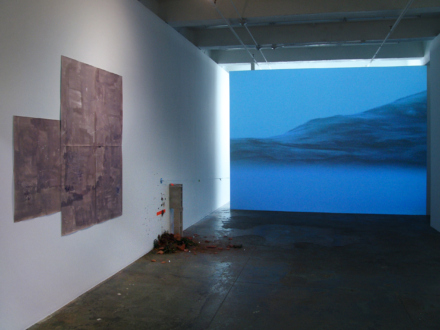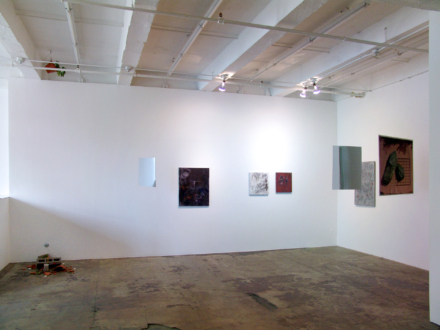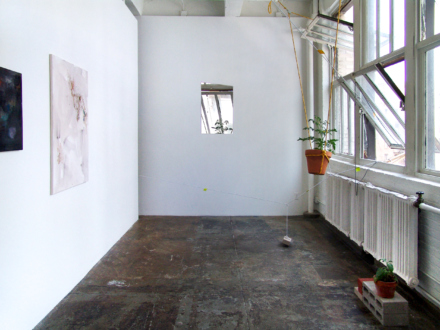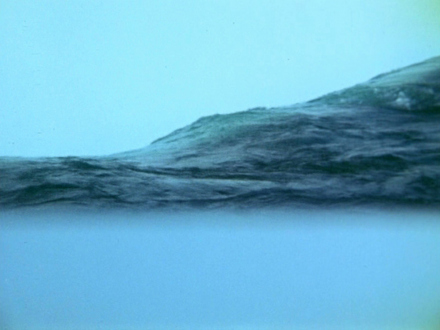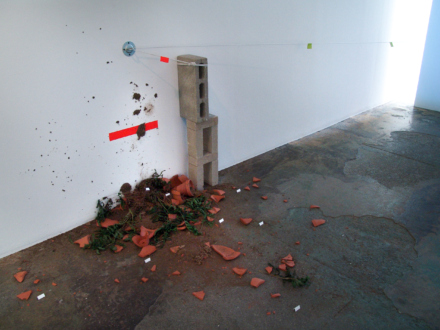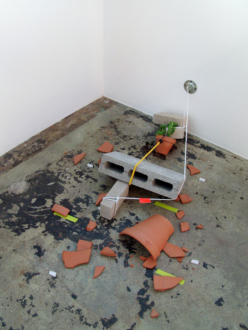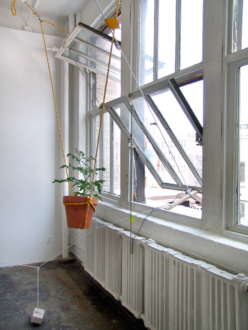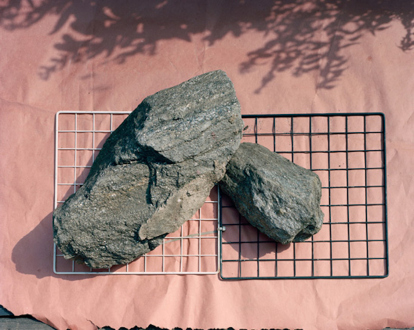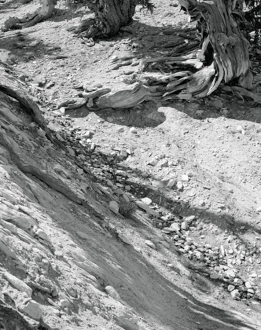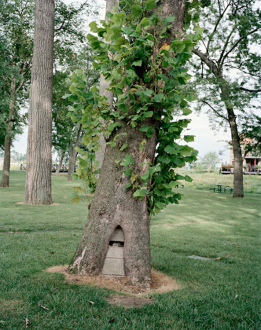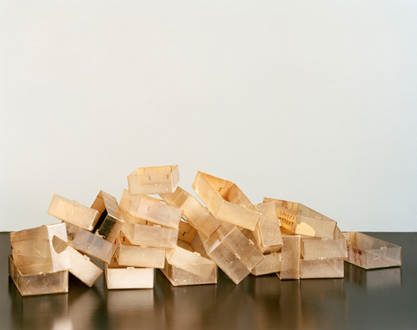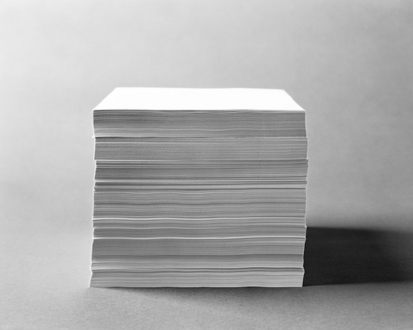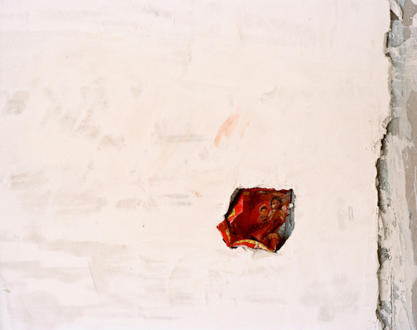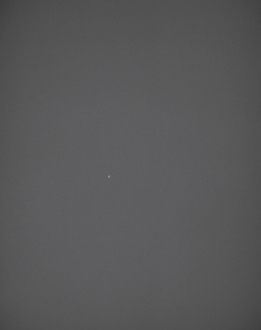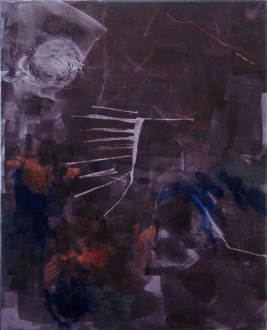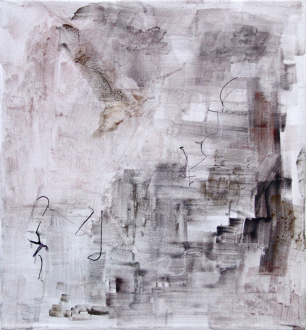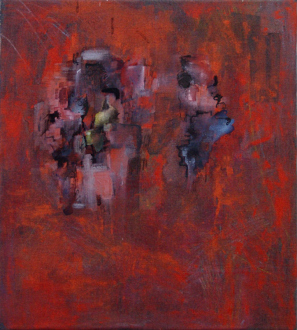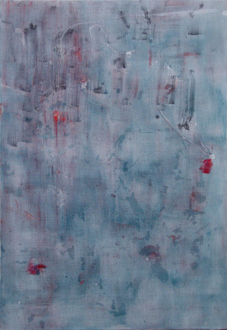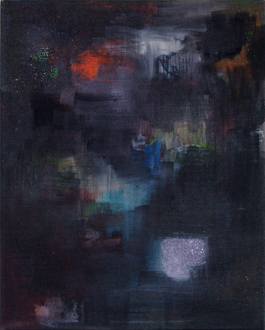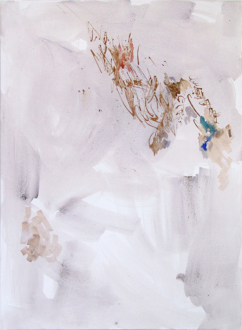On Permanence and Change – Barry Gerson, Duy Hoang, Nandita Raman and Giovanna Sarti (Works)
Selected Works
Barry Gerson, Duy Hoang, Nandita Raman and Giovanna Sarti
On Permanence and Change – Barry Gerson, Duy Hoang, Nandita Raman and Giovanna Sarti Press Release
Thomas Erben is pleased to present an exhibition of four artists: Barry Gerson, Duy Hoang, Nandita Raman and Giovanna Sarti. Though the practices of these artists are visually and conceptually diverse, the show finds its unity in a selection of works dealing with the relationship between transformation and permanence – how to incorporate continuous change, such as in natural processes, into distinct objects.
Using sculpture and installations, Duy Hoang pays minute attention to the spaces he builds and inhabits. Often including plants, Hoang seems to mimic and expand on structures of nature in his precarious constructions, carefully observing each detail in something that can resemble archeology or a crime scene investigation. Having focused on the concepts of survival and trapping in his recent work – as in It Was Very Generous of You to Hold a Funeral for Me (2014), where a heavy table teeters on the edge of a chair, seemingly ready to fall once a wire is sprung – Hoang this time presents us with a scene after the fact, tracking the marks and traces of a trap already set off.
The transparently layered visuality of Giovanna Sarti’s paintings echoes the materials used, bringing to mind alchemical or geological processes. Working on a wide range of scale, Sarti employs pigment, ink, charcoal, varnish and metal dust, which react – some over time – in unpredictable ways, resulting in images that remain in continuous transformation. Channeling impulses from other disciplines such as music, writing and various visual arts, and with a keen awareness of the medium’s genealogy, she manages to infuse a historical style with new relevance.
Barry Gerson has been exploring the essence of filmmaking and cinema since the 60s, developing an increasingly eloquent and precise formal vocabulary. In the film Translucent Appearances (1975), he transforms the simultaneously static and endlessly shifting nature of a waterfall into an abstraction almost resembling painting. By blocking out parts of the image, the artist lets us focus on only a limited part of a constant process, isolating it into something simultaneously permanent and changing.
Barry Gerson, (b. 1939, Philadelphia, PA) whose current practice includes video, cinematic fragment pieces and mixed painting/photo works, is most noted for his films, which have been on display in solo exhibitions at The Whitney Museum (1976, 1978), MoMA (1970, 1978, 1985), The Guggenheim (1971) and many other venues internationally. His work was included in The American Century, The Whitney Museum (2000) and in shows/screenings at Montreux Film Exhibition, Anthology Film Archives, Leo Castelli Gallery, Louisiana Museum of Modern Art (Denmark), Moderna Museet (Stockholm) and Stedelijk Museum (Amsterdam), to name just a few. Such institutions as MoMA, the Museum of Modern Art (Stockholm), and the Centre Pompidou (Paris) have his work in their collections.
Nandita Raman’s photographs are centered around objects – natural and/or man-made – often in a state of slow transformation or accumulation. A mountain face is gradually eroding; a tiny aircraft incrementally makes its way across a vast sky; stacked sheets of paper resemble layers of sediment. Exhibition space and viewer are brought into communication with these brief excerpts of long-term transition through the addition of mirrors, sometimes with images mounted on the back, sometimes placed so as to reflect a photograph into the room. As reflections move and turn, the act of looking is infused into each image, renewing and complicating the subjects at hand
Nandita Raman (b. 1980, Varanasi, India) received her BA at the University of Delhi in 2008, and her MFA at ICP-Bard in 2012. Her work has been exhibited most notably at the Center for Documentary Studies, NC, and Columbia University. She is a recipient of the Daylight/CDS Project prize (2010) and the Sarai Independent Study Fellowship (2006). Raman’s work has been published in Harper’s Magazine, Conveyor Arts and The Sunday Guardian, among others. The artist lives and works in New York and is currently advised by Payal Arts International.
